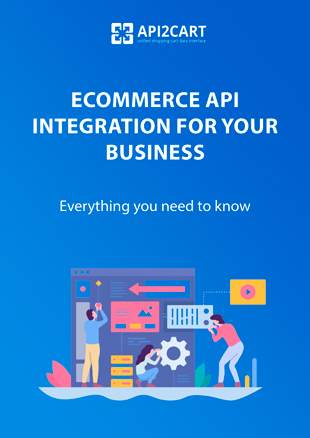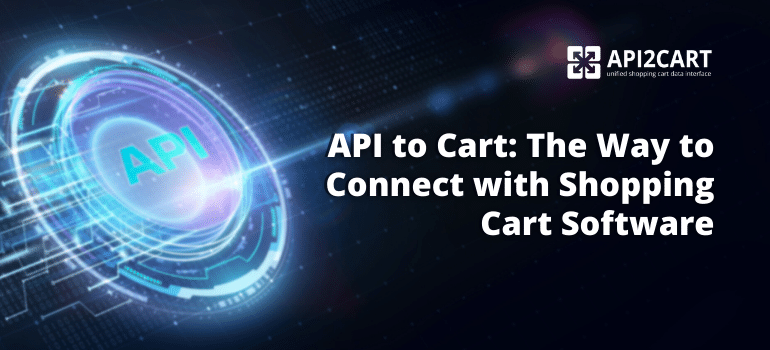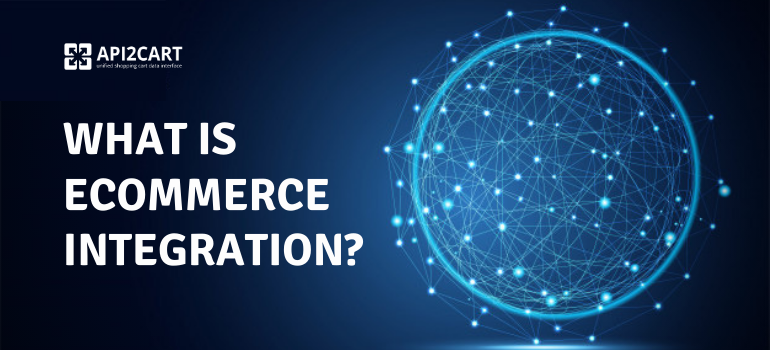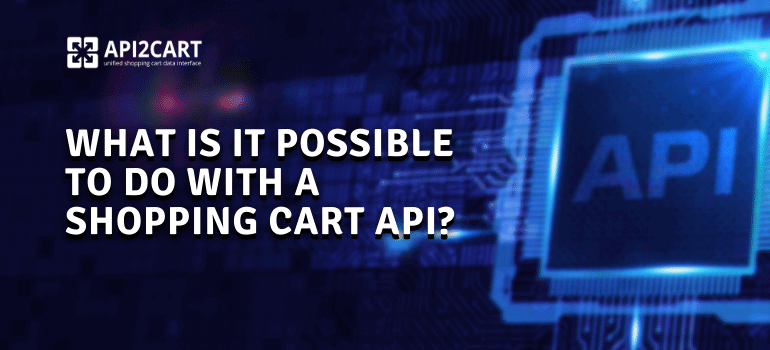
Today, shopping cart API has become an invaluable opportunity for software providers to take advantage of the eCommerce market. Having access to such an API, they can work with various store data and develop their core functionality.
The only challenge is the development of integration with shopping cart APIs. It is not simple as it may seem for the first time. Each shopping cart API has its own features and logic.
In this article, you will learn more about shopping cart API, the pitfalls of integration, and how to overcome them easily.
What Can You Do With a Shopping Cart API?
Shopping Cart API serves as access to different types of store information. Usually, it allows to GET, ADD, UPDATE and DELETE info from stores like orders, products, customers, categories, etc.
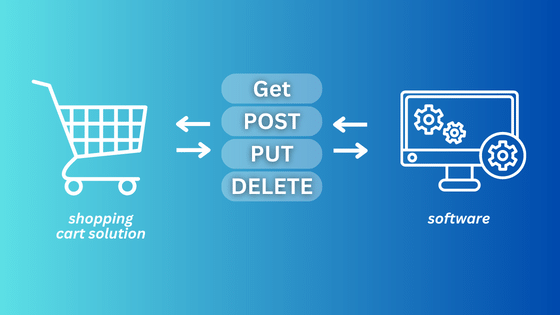
Shopping cart API integration is the process of establishing a connection between an app or software and an eCommerce platform. As a consequence, software providers can offer various useful features for online store owners. It involves order management, inventory sync, product management, and many more.
If you have already developed an integration with shopping carts, you may know that its implementation involves a lot of challenges. Let's explore some of them below.
Shopping Cart API Examples
Each shopping cart API has its own logic and specifics. Let's see some examples of popular eCommerce APIs:
- Magento API
It allows developers to get access to online stores built on the Magento platform and manage data like customers, orders, products, etc. The API supports both REST and SOAP communication protocols. The REST API provides a set of functions that you can use to send requests and receive responses using the HTTP protocol. Namely, by using GET, POST, PUT, or DELETE methods, you can work with Magento data according to your business needs.
- WooCommerce API
This API enables developers to read, create, update, and delete data from WooCommerce stores, like products, prices, orders, customers, and shipping statuses.
- Shopify API
It allows software providers to access data from Shopify-based eCommerce stores and use it for their own business goals. The API supports XML and JSON formats and can be accessed via HTTP requests such as GET, POST, PUT, and DELETE.
- BigCommerce API
BigCommerce's RESTful API makes it easier to integrate your applications with BigCommerce and lets you code in the language of your choice. It allows one to get and manage such store data as orders, products, customers, categories, shipments, and other store info. The API supports all CRUD actions through HTTP methods (GET, POST, PUT, DELETE).
- Squarespace API
This shopping cart's API includes Inventory API, Orders API, Products API, Profiles API, Transactions API, and Webhook Subscriptions API. They enable developers to access stock information, retrieve order history, get and manage products, etc.
Which Industries Need Shopping Cart API Integration
A lot of industries rely on shopping cart API integration for their success. Below are some of them.
eCommerce Marketing Automation Software
Marketing automation software relies on integration with shopping platforms for a number of reasons: to access data about products and orders, customer contacts, coupons, etc.
In many marketing automation processes, information from e-stores is a central component. Shopping cart integration enables systems like these to send emails with new items, discounts, and special prices to online stores' customers, notify them of order statuses, track cart abandoners, and generate smart email statistics.
Multi-Channel Software
For such systems, a seamless shopping cart API connection is a necessity. It allows them to get info on products, orders, shipments, inventory levels, etc., and update the data across all sales channels.
Shipping Management Software
Shipping software depends greatly on integration with shopping carts, which allows them to get orders from various sales channels, update tracking info and order statuses, create shipping labels, and organize the data in detailed reports.
Chatbots
To build an eCommerce chatbot, it must be integrated with the business ecosystem (shopping carts, in the first place) in order to access product catalogues, data on inventory levels and tracking numbers, etc. The system needs to be able to handle orders, change stock levels, and get lists of abandoned orders. For this to happen, it must connect with dozens of different shopping cart APIs.
What are the Main Pitfalls of Shopping Cart Integration?
Different eCommerce software for online retailers is mainly driven by integration with shopping carts to deliver their functions and products. For instance, shipping software requires integration to enable retailers to import orders and update order status.
Shopping cart API integration is a completely necessary investment for every provider of eCommerce software. There is, however, little awareness among many eCommerce software providers about how much commitment it takes to develop and maintain such integration. Integration with shopping carts is likely the greatest challenge in developing different kinds of eCommerce applications. Connecting multiple systems for data exchange is brain-racking, costly, and requires tons of technical work.
Fine work will take a very long time, particularly if you wish to connect to multiple platforms. And now consider the costs. Not only those you will encounter in the production of integration but also those linked to the continued maintenance of fully prepared and ongoing integration. Updated versions of eCommerce platforms are produced now and then so that routine upgrades are imminent.
Even more unique issues are encountered by eCommerce software providers when integrating with various data sources. It includes various attributes and object versions, differing formats and standards, optimization challenges, etc.
A unified integration with API2Cart is the smartest thing you can do. The service allows you to link to the data from 40 + shopping platforms easily. The integration with multiple shopping carts through API2Cart also provides even more advantages for your eCommerce software solution and your customers.
Universal Shopping Cart API Integration Development
As mentioned above, engaging with numerous shopping cart APIs requires a lot of time, resources and commitment. You can overcome all the difficulties associated with the integration of a shopping platform and marketplaces with API2Cart. Our company has developed a unified API that integrates your eCommerce software solution with customer online shops based on any shopping platform or marketplace.
It provides a universal API to connect to more than 40 eCommerce platforms, including Shopify, PrestaShop, BigCommerce, Magento, WooCommerce, OpenCart, as well as many others. Above all, you will be able to integrate your business once and link to as many shopping sites as you need.
API2Cart offers a scalable and flexible workplace in which you can add a growing number of online shops. Moreover, it provides full flexibility to access and manage all the necessary info on products, orders, customers, inventory levels, etc. For that API2Cart has developed more than 100 API methods.
Besides, the major benefit of such integration is that you do not need to establish separate integrations or incorporate support for new variants of shopping carts when they occur. The tech team adds new versions of the platforms as they come out. The team also continues to work on expanding the range of supported platforms.
The service ensures secure data transfer with the help of an SSL certificate and a 32-symbol API key. To make your integration process easier, the API2Cart offers detailed API documentation with code samples and interactive examples.
In addition, API2Cart has adjustable pricing and encourages you to check the service completely free for 30 days. All you need to do is to register your account on the service now.
